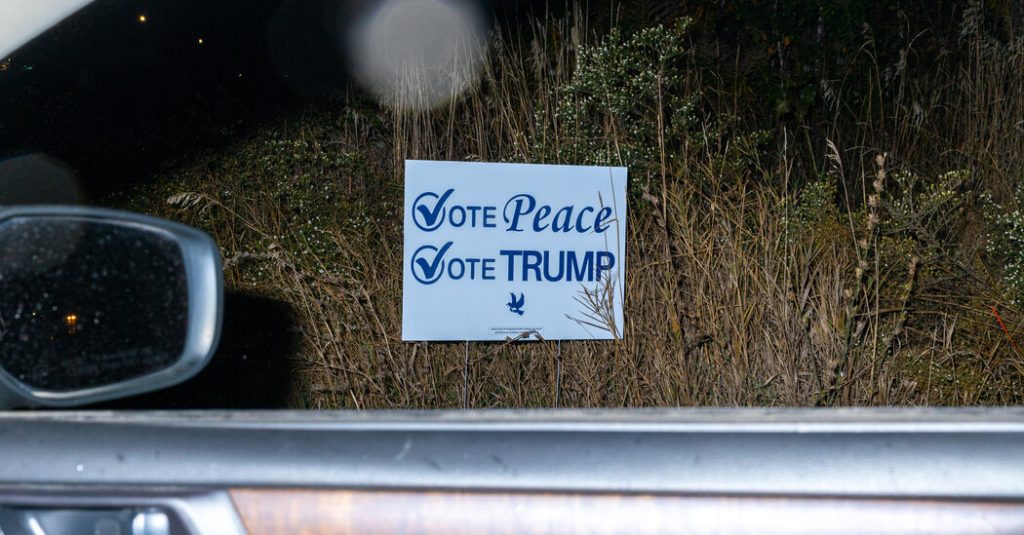We live in an increasingly dangerous and threatening world. There are more flashpoints in today’s global geopolitics than we have seen in decades, presenting a generational challenge to the incoming administration of Donald Trump and all of America’s elected leadership.
At the Panetta Institute for Public Policy, I tell students that in our democracy, we govern either by leadership or by crisis. If leadership is there and willing to take the risks associated with responsibility, we can avoid, or certainly contain, crisis. But if leadership is absent, we will inevitably govern by crisis. The same is true when it comes to foreign policy.
As President-elect Trump is about to be inaugurated for his second term, a fundamental question being asked around the world is whether he will repeat the unpredictable and chaotic approach to foreign policy that defined his first term or embrace the idea that he stressed repeatedly during his campaign of “peace through strength.”
President-elect Trump cannot adopt that foreign policy concept, which holds that a strong military can prevent conflict, without also embracing the definition that President Ronald Reagan so eloquently gave it in his speech marking the 40th anniversary of the Normandy invasion. “We in America have learned bitter lessons from two world wars,” said Mr. Reagan, who made the idea famous. “It is better to be here ready to protect the peace than to take blind shelter across the sea, rushing to respond only after freedom is lost.” He also made clear that “the strength of America’s allies is vital to the United States.”
The world that awaits Mr. Trump is far different from and more threatening than what he had to confront in his first four years. Autocrats that once operated in their own spheres of influence have now joined together in an axis of mutual support and aggression: Vladimir Putin of Russia is not just a temperamental bully but also a tyrant who invaded the sovereign democracy of Ukraine and continues to threaten democracies in the West; Xi Jinping of China has made clear that he is prepared for a potential Taiwan invasion and wants to compete with the United States as a leading military power; Kim Jong Un of North Korea is not just threatening democracy in South Korea but has also sent drones and thousands of troops to Russia to fight Ukrainians; Iran, weakened by Israel, continues to enrich uranium and is ever closer to developing a nuclear weapon; and ISIS has once again raised its ugly head by inspiring a “lone wolf” attack in New Orleans.
Mr. Trump has always prided himself on being a dealmaker, pledging in his campaign that he would resolve such conflicts in the first few days of his presidency. But precisely because it is a more dangerous world, that’s unlikely to happen. And if he tries and fails, the United States will appear weak. There is concern that Mr. Trump may have already started off badly by threatening Greenland, the Panama Canal Zone and Canada. Those are the kind of careless and disruptive comments that only undermine American credibility when it comes to dealing with real-world crises.
This is, however, a time when “peace through strength” could actually work. It will require strong, serious and stable leadership to turn the current multipolar crisis into an opportunity for America. The incoming president can be a dealmaker, but it must be from a position of strength. And strength begins with the United States remaining the strongest military power on the face of the earth.
To ensure that, the new administration must be willing to increase military investments in recruitment, training, readiness, nuclear weapons systems, the U.S. defense industrial base and research and technology. To accomplish all of this, the defense budget cannot rely on the unpredictability of continuing resolutions. There must be a five-year budget that makes clear our defense priorities and achieves savings in duplication, procurement and bureaucracy.
On Ukraine, it is becoming clear that Ukraine and Mr. Putin must find a way to a negotiated settlement to the war. Mr. Trump must make clear that the United States will continue to work with NATO to support Ukraine and that Mr. Putin will not be allowed to succeed. If that message is clear to Mr. Putin and if Ukraine can gain traction against Russia, President Volodymyr Zelensky will have the leverage to negotiate a settlement that provides for Ukraine’s sovereignty and security, allows Russia to remain in Crimea and other limited areas and achieves an end to the war. That would be peace through strength.
Mr. Trump should tell China that it will help Taiwan defend itself, that the South China Sea will remain open pursuant to international law and that the United States will support a strong alliance of Japan, South Korea, Australia, India and other Asian countries to protect the freedom of the seas and commerce in the Pacific. From a position of greater military strength, the United States would have leverage for a more productive dialogue with China on trade, cybersecurity, fentanyl, satellites and other economic issues. To simply expand tariffs on China and start a trade war will result in an economic backlash among unhappy consumers in the United States. Retribution is not dealmaking.
Iran is yet another opportunity. Tehran has been weakened by Israel both militarily and economically; it could very well be open to negotiations on limiting nuclear enrichment and stopping support for proxies in exchange for relief from economic sanctions. Since the previous Trump administration was critical to the establishment of the Abraham Accords, Mr. Trump could work with Israel to bring Saudi Arabia into the deal, along with other moderate Arab nations. Building a Middle East alliance would be important to dealing with Iran and terrorism, and establishing an approach to peace in the Middle East.
The president, as commander in chief, has the power and responsibility to determine America’s future security. If he is careless with that awesome power, the United States could very well find itself in another world war. But if the president understands his power, as Mr. Reagan did, he can provide strong leadership and build alliances that steer the world out of war. The key to peace is strength, and the key to strength is leadership.
Leon E. Panetta served as secretary of defense and director of the C.I.A. in the Obama administration. He co-founded the Panetta Institute for Public Policy in 1997.
The Times is committed to publishing a diversity of letters to the editor. We’d like to hear what you think about this or any of our articles. Here are some tips. And here’s our email: letters@nytimes.com.
Follow the New York Times Opinion section on Facebook, Instagram, TikTok, WhatsApp, X and Threads.





